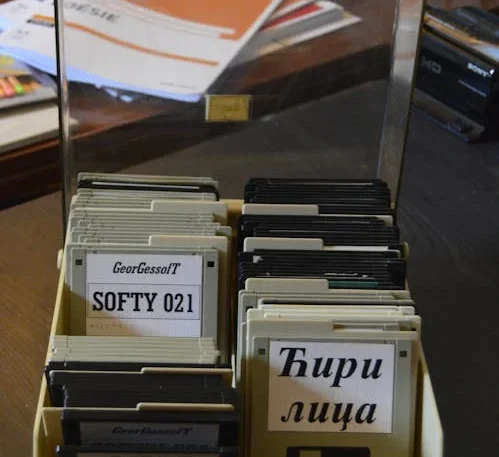In the rapidly evolving world of technology, it’s easy to overlook the humble beginnings that paved the way for today’s advanced storage solutions. One such relic from the past is the floppy disk, a once ubiquitous medium that stored our precious data long before the advent of cloud storage and USB drives. Despite its decline in mainstream use, the floppy disk’s legacy endures, and its presence can still be felt in some surprising places.
The Birth and Evolution of the Floppy Disk
Introduction (1971): IBM revolutionized data storage with the introduction of the 8-inch floppy disk. This new technology allowed data to be stored magnetically on a flexible disk encased in a protective sleeve, offering a storage capacity of about 80 KB. At the time, this was a significant advancement, providing a portable and relatively high-capacity storage solution.
Growth (1978): Shugart Associates took the next step in floppy disk evolution with the 5.25-inch version, which became immensely popular in personal computers. This iteration increased storage capacity to around 360 KB, and later to 1.2 MB with double-density versions, solidifying the floppy disk’s role in the burgeoning PC market.
Peak (1980s-1990s): The 3.5-inch floppy disk emerged as the standard, offering a more durable and compact design with capacities of 720 KB (double-density) and 1.44 MB (high-density). These disks became the predominant medium for software distribution and data transfer, firmly establishing their place in the history of personal computing.
The Decline and Obsolescence
As technology advanced, the floppy disk was gradually overshadowed by more efficient storage solutions such as CDs, DVDs, and USB drives. By the early 2000s, floppy disks had largely become obsolete, with their usage diminishing significantly. The final nail in the coffin was driven by the introduction of floppy-less computers, like Apple’s iMac in 1998, and the cessation of new floppy disk production by Sony in 2011.
The Floppy Disk Lives On
Despite their decline, floppy disks are far from extinct. They continue to be used in various niche applications due to their stability and compatibility with older systems:
- Aviation: Some Boeing 747s, 767s, and Airbus A320s still rely on floppy disks for critical navigation updates.
- Medical Equipment: Older CT scanners and ultrasound machines use floppy disks to store and transfer data.
- Public Transportation: San Francisco’s subway system depends on floppy disks to boot up each morning.
- Entertainment: Chuck E. Cheese animatronics, although being phased out, have historically used floppy disks for their operations.
- Industrial Machines: Older CNC machines and embroidery machines still use floppy disks for software updates.
Even the US nuclear missile sites used 8-inch floppy disks until 2019, underscoring the reliability and durability of this storage medium.
The Collector’s and Enthusiast’s Delight
The floppy disk has found a new lease on life among collectors and retro computing enthusiasts. Sites like floppydisk.com, run by Tom Persky, sell and recycle floppy disks, catering to a dedicated community that values these vintage storage devices. Persky’s business sells about 1,000 floppy disks per day, highlighting a niche market that remains surprisingly robust.
The Iconic Legacy
The floppy disk’s design has become an enduring symbol of data storage, immortalized as the “save” icon on many computer applications. Its impact on the development of personal computing and data storage cannot be overstated. The floppy disk enabled the software market to flourish, allowing for the distribution of programs via mail and retail, and even sparked movements like freeware and shareware.
Conclusion
The floppy disk may no longer be the cutting-edge storage solution it once was, but its legacy continues to spin in various corners of the world. Its stability, simplicity, and role in the history of computing ensure that it remains a beloved icon of the past. To delve deeper into the enduring presence of floppy disks in today’s world, check out this fascinating article on ZDNet.
As we marvel at today’s technological advancements, let us also remember and appreciate the trailblazers like the floppy disk that brought us to this point. Their stories remind us that innovation often starts with humble beginnings.
At Cynxt, we specialize in delivering IT solutions that ensure peace of mind. Contact us today or call (256) 456-5858 to schedule an appointment. Located at the Shoals Business Incubator in Florence, AL, we are dedicated to helping you maintain a smooth and secure digital operation.
Cynxt Service Areas:
We proudly serve businesses in the following areas and surrounding cities. Click here to view the full list. Remote support is also available for businesses anywhere.
North Alabama:
- Florence
- Muscle Shoals
- Russellville
- Athens
- Decatur
- Huntsville
Middle Tennessee:
- Franklin
- Columbia
- Lawrenceburg
- Pulaski
About Us:
With over 18 years of IT experience, Cynxt IT Services delivers enterprise-level solutions tailored to small and medium-sized businesses. As a trusted Managed Service Provider (MSP), we’re dedicated to supporting your growth with reliable, expert IT services and unmatched customer care.
Services:
Explore our wide range of IT Services. Learn more about how we can help with your IT needs. Not finding the service you’re looking for? Contact Us to discuss custom solutions.
- Managed IT Services
- Hourly IT Support
- Cybersecurity
- Cloud Services
- Networking
- Network Cabling
- IT Consulting





